NSF
-

New ‘reset’ button discovered for circadian clock
The discovery of a new "reset" button for the brain’s master biological clock could eventually lead to new treatments for seasonal affective disorder, reduce the adverse health effects of working the night shift, and possibly even treat jet lag. Read MoreFeb 2, 2015
-
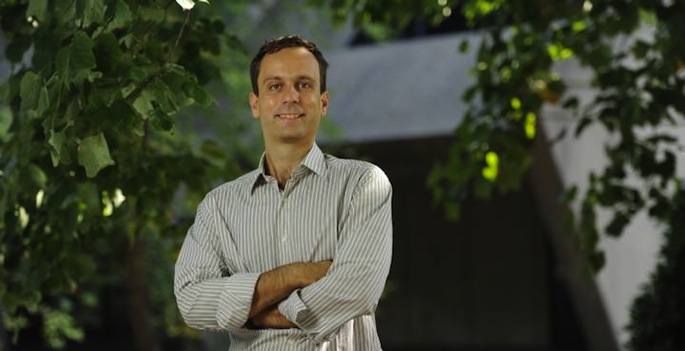
Vanderbilt team builds miniature capsule robots, heads to NSF I-Corps
Pietro Valdastri, assistant professor of mechanical engineering and electrical engineering, and postdoctoral scholar Ekawahyu Susilo will begin Valdastri’s second run as principal investigator in the NSF I-Corps program as they explore the commercial potential of modular open-source architecture for building capsule robots. Read MoreJan 13, 2015
-

Electrical stimulation ‘tunes’ visual attention using long-term memory
Picking a needle out of a haystack might seem like the stuff of fairytales, but our brains can be electrically “tuned” to enable us to do a much better job of finding what we’re looking for. Read MoreJan 7, 2015
-
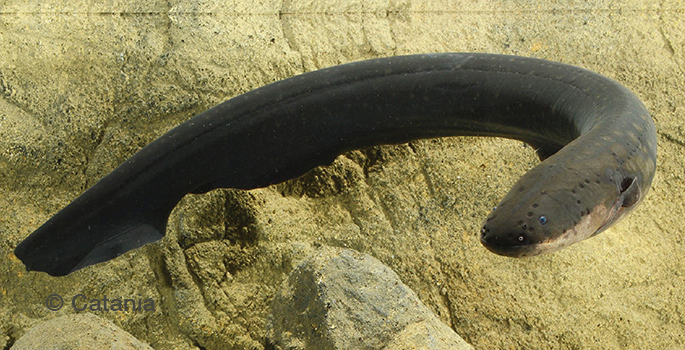
Electric eels deliver Taser-like shocks
A Vanderbilt biologist has determined that electric eels possess an electroshock system uncannily similar to a Taser. Read MoreDec 4, 2014
-

How the hummingbird achieves its aerobatic feats
The most detailed aerodynamic simulation of hummingbird flight conducted to date demonstrates that it achieves its aerobatic abilities through a unique set of aerodynamic forces. Read MoreNov 21, 2014
-

Life’s extremists may be an untapped source of antibacterial drugs
A family of single-celled organisms that thrive in environments too extreme for most other species to survive may be an untapped source of new antibacterial drugs. Read MoreNov 21, 2014
-

Improving breast cancer chemo by testing tumors in a dish
A team of biomedical engineers has developed a new "tumor-in-a-dish" technology that promises to improve the effectiveness of chemotherapy. Read MoreOct 28, 2014
-

NSF grants for Sociology, Earth and Environmental Sciences
The NSF has awarded a pair of grants to Vanderbilt researchers for the study of local water conservation policies across the nation and the role of litigation in social activism, respectively. Read MoreOct 1, 2014
-

Research Roundup, Summer 2014
Private Property and Government Inaction | Probiotic Could Prevent Obesity | Freedom from Power Cords | Pickiness Doesn’t Always Pay Read MoreSep 26, 2014
-

Duvall receives NSF Early Career award
Assistant Professor of Biomedical Engineering Craig L. Duvall has received a National Science Foundation Faculty Early Career Development grant. Read MoreAug 29, 2014
-
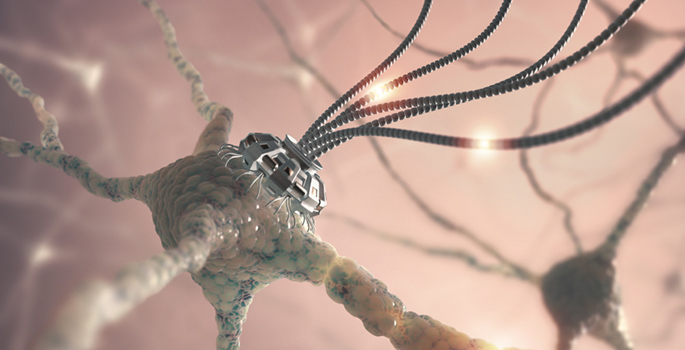
Three researchers receive EAGER awards
Three Vanderbilt researchers have received an award designed to better understand how complex behaviors emerge from brain activity. Read MoreAug 22, 2014
-

Treatments for frog fungus
The fungicide amphotericin B may be a useful treatment for a frog fungus that is killing amphibians worldwide. Read MoreJul 25, 2014
-
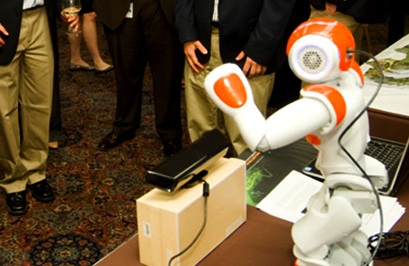
Russell the Robot goes to Washington
Russell the Robot, the two-foot humanoid that has demonstrated robots can help young children diagnosed with autism spread disorder learn basic social skills, was featured at the 20th annual Coalition for National Science Funding exhibit. Read MoreMay 23, 2014
-

Twenty-one Vandy grad students snag prestigious NSF fellowships
This year 21 Vanderbilt Graduate School students have won prestigious National Science Foundation graduate research fellowships. Read MoreMay 22, 2014
-
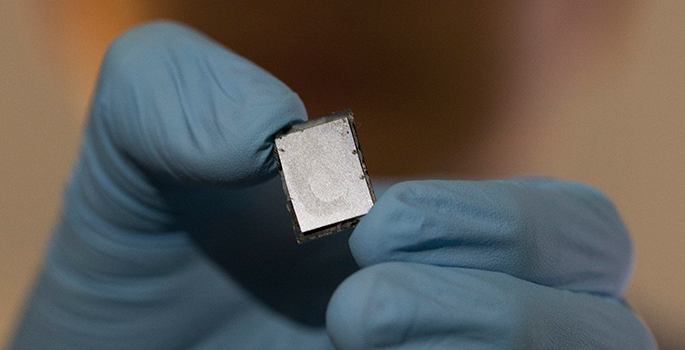
Liberating devices from their power cords
A new type of supercapacitor brings us a step closer to a day when everything from cell phones to electric vehicles will no longer need separate batteries. Read MoreMay 19, 2014
-

Electric “thinking cap” controls learning speed
Vanderbilt psychologists show it is possible to selectively manipulate our ability to learn through the application of a mild electrical current to the brain, and that this effect can be enhanced or depressed depending on the direction of the current. Read MoreMar 21, 2014
-

Nanoscale optical switch breaks miniaturization barrier
An ultra-fast and ultra-small optical switch has been invented that could advance the day when photons replace electrons in the innards of consumer products ranging from cell phones to automobiles. Read MoreMar 13, 2014
-
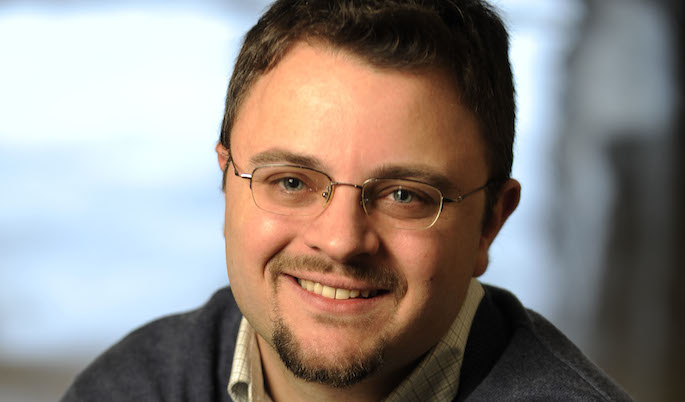
Valentine receives NSF Early Career award
Assistant Professor of Mechanical Engineering Jason Valentine has received a National Science Foundation Faculty Early Career Development grant. Read MoreFeb 20, 2014
-
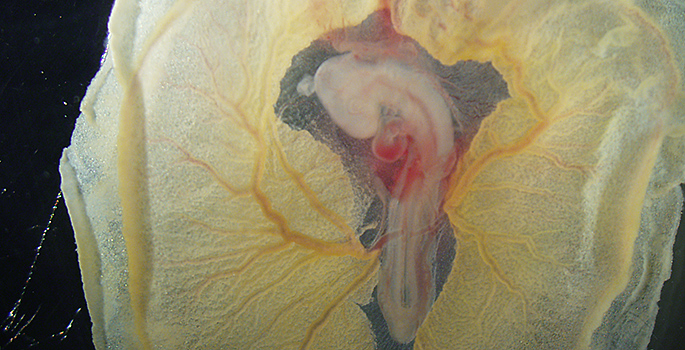
Baby hearts need rhythm to develop correctly
The mechanical forces generated by the rhythmic expansion and contraction of cardiac muscle cells play an active role in the initial stage of heart valve formation. Read MoreFeb 18, 2014
-
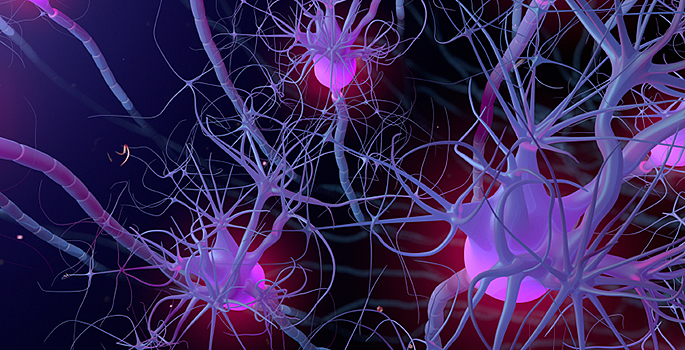
In the brain, the number of neurons in a network may not matter
A study has found that the time it takes neural networks in the brain to make decisions is remarkably stable regardless of size: a finding that could make it easier to achieve the goal of the President's BRAIN Initiative established last spring. Read MoreFeb 3, 2014